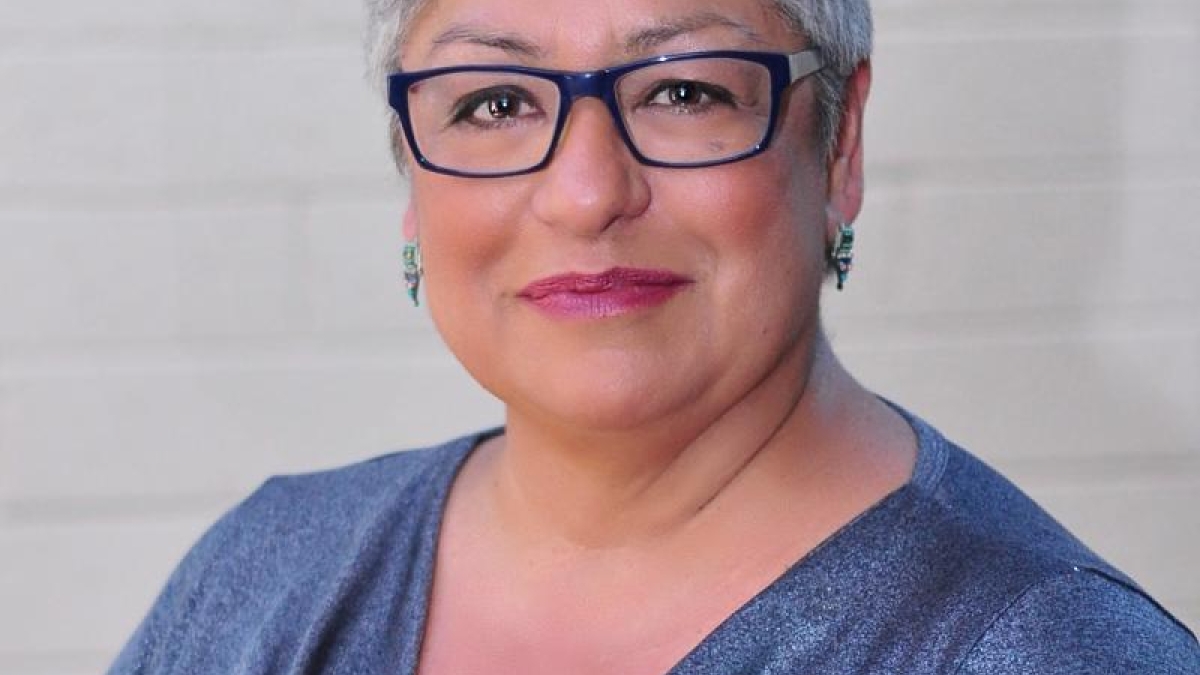New College professor honored by Arizona Humanities Council

The Arizona Humanities Council has selected Gloria H. Cuádraz, associate professor of sociology in ASU’s New College of Interdisciplinary Arts and Sciences, as the 2013 recipient of the Dan Shilling Public Humanities Scholar Award. The annual award recognizes a scholar who has worked to enhance public understanding of the role the humanities play in transforming lives and strengthening communities.
Cuádraz’s nomination was strongly supported by members of the Litchfield Park Historical Society. She worked with the organization on the Mexican Americans of Litchfield Park Oral History Project, documenting the lives of members of the Mexican American and Yaqui communities who lived and worked in the labor camps of what was once the Southwest Cotton Company and later, Goodyear Farms.
Cuádraz interviewed former camp residents and traced the history of Litchfield Park and the migrant workers who broke ground, dug canals, cleared and irrigated the land, and planted and harvested crops. Several of her students from ASU’s West campus participated in and benefited from the project.
Belen Moreno, who lived in one of the camps from 1936 to 1959, worked with Cuádraz to locate former residents to interview. The oral history project led to a Litchfield Park Historical Society Founder’s Day celebration reuniting camp residents; 500 people attended.
“It was a wonderful sight to see people who had not seen each other in years come together for this event,” Moreno said.
Cuádraz has continued to support the society as a board member and mentor, noted Sonja Hendrick, the group’s current oral history chair and past president. “The Litchfield Park Historical Society oral history library has grown to more than 200 video/transcriptions,” Hendrick noted. “Without Gloria this would not have been possible. She is a remarkable scholar and a great inspiration to both historians and local residents.”
“I am deeply honored to receive this recognition,” Cuádraz said. “The partnership I experienced with members of the Litchfield Park Historical Society represents how university and community organizations can work together to advance our knowledge, our collective memory, to recognize the diversity of people who have contributed to Arizona’s social, economic and cultural history. Where would the humanities be without the stories of ordinary, yet extraordinary people?”
Cuádraz also said the award is especially meaningful because it comes from the Arizona Humanities Council, the organization that awarded her the initial grant to begin work on the Litchfield Park project.
At the awards event, Cuádraz thanked colleagues and family members, including her late parents. “My father would have found it especially poignant because he crossed the border at the age of 15 in 1921, sponsored by the Arizona Cotton Growers Association during Arizona’s first cotton boom. He never would have imagined that 85 years later, his sixth daughter would be involved in researching the history of how Mexican Americans became central, not only to Arizona’s burgeoning cotton industry, but to its overall economic development.”
Originally from the agricultural borderlands of Imperial Valley, Calif., Cuádraz began her higher education at the local community college and transferred to UC Santa Cruz, where she graduated with a bachelor’s degree in sociology. She received her doctorate in sociology from the University of California, Berkeley in 1993 and joined ASU the following year.
Cuádraz’s areas of interest include the sociology of education, Chicana/os and higher education, feminist testimonio, and theory and method in oral history. She is one of the founders of the bachelor’s degree in ethnicity, race and First Nations studies offered by New College’s School of Humanities, Arts and Cultural Studies (SHArCS), and served as director of the degree program for six years. She is best known among students for mentoring those interested in graduate education.
“Dr. Cuádraz is truly an exceptional humanist, scholar and member of her community,” said Marlene Tromp, director of SHArCS. “If everyone in the academy invested the energy that Dr. Cuádraz has in making the world a better place, there is no doubt that we would live in a better world.”